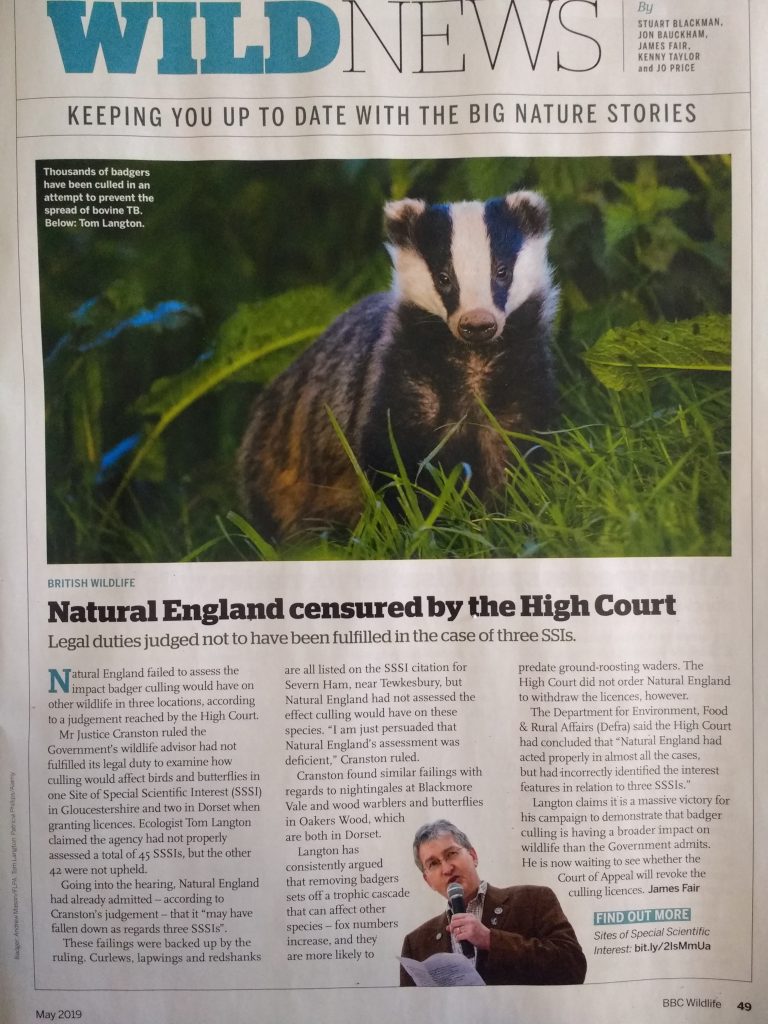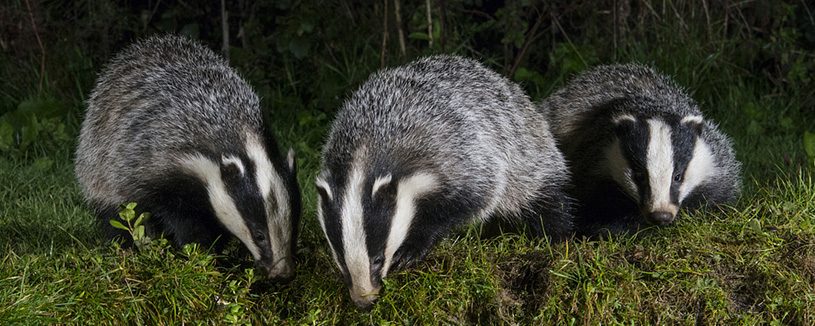
The latest BBC Wildlife Magazine has a short feature on our recent gruelling court battles to seek justice for badgers and the places where they live. Natural England threw detailed legal arguments at us last autumn in a bid to try to stop crucial evidence from designated sites expert Dominic Woodfield being submitted to the Judicial Review. This skirmish added a permission hearing, a process that cost us an extra £16,000, that we somehow found due to the generosity and determination of The Badger Crowd.
Over the judicial process last year, NE had already indicated that some SSSIs had been inadequately assessed during issue of the 2017 cull licences. A new judge then ordered a sample of 45 SSSIs to be checked and in the run up to the March 2019 hearing, Natural England agreed to prohibit badger trapping on SSSIs within 100m of all watercourses where otters are a protected feature. NE also agreed it would prevent the placing of cage traps in the marsh/riparian wet areas, and to disallow the digging-in of cage traps at dawn and dusk. Our pressure resulted in NE confirming that when it said ‘’avoid’’ it meant ‘’prohibit’’, removing the ambiguity that may lead to avoidable disturbance and potential damage to wildlife.
Readers should also know that potential problems with 25 of the 45 SSSIs were ‘parked’ and not explored in detail, partly because the judge invoked something called the Senior Courts Act 1981 (duty to refuse relief where outcome not substantially different). This means that even if we were proved right in our claims that assessments of these SSSIs were not done correctly, the judge accepted NE’s defence that this would have made ‘no difference’ to the safeguards they would have required when licensing. However the ‘no difference’ defence does not cover up the primary failure of assessment, and this is one reason why we are appealing.
Natural England conceded that their assessments were defective on three SSSIs before we got to court. They also made several adjustments and amendments to their licence conditions in response to our claims. The judge then found we were right on a further 3 of 45 SSSIs. He relied on the ‘no difference’ defence to avoid getting into the detail on a further 25. Put all these things together and the magnitude of Natural England’s failures could involve well in excess of 10% of sites. Bearing in mind that this is a sample, and that over 1,000 SSSIs in and around the west of England may be influenced by the direct and indirect impacts of badger culling, dozens of sites may be subject to damaging impacts right now.
We can only hope that we are allowed to appeal this section of our challenge and that Natural England will be found to be wrong over their view of how weak SSSI protection is in law.
This part of the legal challenges has been led by expert work from Dominic Woodfield, who has again put in an enormous effort and for whom huge credit and thanks are due.
Please donate to help fund our work: Donate
Discover more from The Badger Crowd - standing up for badgers
Subscribe to get the latest posts sent to your email.

